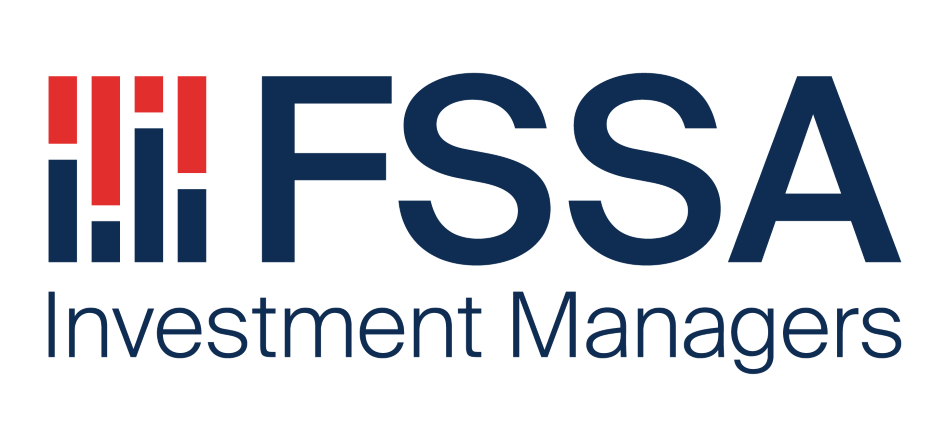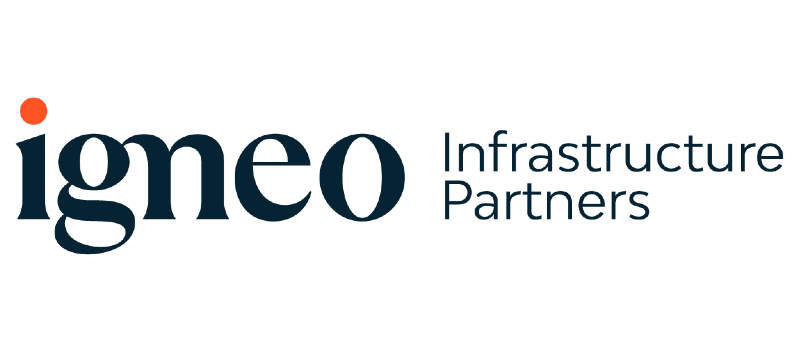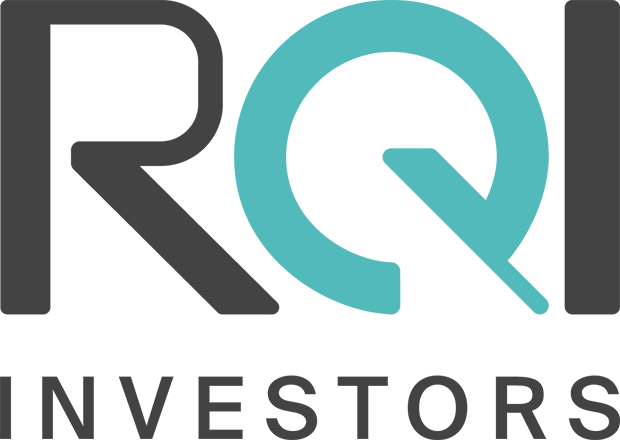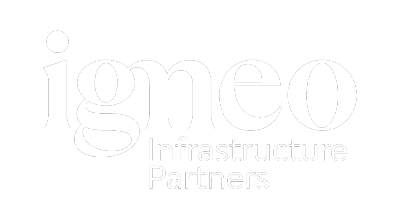Your search returned more than 50 results. The 50 most relevant results are displayed.
The investment world conflates what ‘absolute return’ and ‘total return’ actually mean – and throwing in the latest buzzword ‘unconstrained’ has only made things worse. Our infographic cheat sheet demystifies some common terms used to describe fixed income investment approaches.
Asian fixed income is not just about the asset class, but the experience of the people investing in the asset class. Being on the ground in Asia since 1999, we believe we can deliver a more in-depth view of the many complexities of the region.
Learn about investing in fixed income today. First Sentier Investors' on-the-ground teams share investment ideas uncovered in developed and emerging markets.
Asia is projected to become the oldest region in the world – by the 2030s, it will be home to around 60% of the world’s elderly. Jamie Grant, Head of Emerging Markets Debt and Asian Fixed Income at CFSGAM, explains why these demographic shifts are expected to have a significant impact on demand for Asia’s fixed income markets over the next decade.
Investing in Asian Fixed Income offers the potential for strong returns, an attractive income stream and diversification benefits versus developed markets.
We believe bond market demand in Asia represents an opportunity for fixed income investors. There are many factors driving this positivity; Asia’s strong growth outlook relative to other parts of the world, its demographics, the diversification within the universe of issuers and compared volatility and returns with other fixed income markets. As we look towards a post-Covid world, what case can be made for investing in Asia USD Investment Grade Credit?
We consider ESG risks to be factors that may place business value at risk. Companies at risk are identified using both external providers and our own internally driven research, which is based on a systematic and extensive company meeting program.
Benchmark Relative. Absolute Return. Total Return? Global unconstrained? Here our global fixed income team demystify some of the common language used to describe approaches to fixed income investing – explaining the differences – and how they can be applied to various objective-based strategies within a broader portfolio.
Global credit markets have been challenged in 2018 and spreads have widened. Asian issuers have not been immune from this volatility. Following another default by a Chinese issuer, our Asian Fixed Income and Emerging Markets Debt team take stock of where markets are currently, what opportunities (if any) are present in the region, and outline how investors can gain exposure to the asset class if desired.
APRA market communication on capital call expectations – 1 November, 2022
People are are at the heart of our success as a leading global asset manager
Access a global opportunity set with the on-the-ground research and skill of specialist emerging markets investors.
Read regular news updates, research papers, investment strategy updates and thought pieces from our leading investment experts.
We are entering a new era. The year 2024 will be unpredictable and clouded by many uncertainties. It will be marked by geopolitical risks, the ongoing taming of the inflation beast, and how the US Presidential election will impact markets.
Global investment manager, First Sentier Investors, today announced changes to its investment capabilities within Australia.
A diverse range of global, regional and sector based equity, multi-asset and fixed income investment strategies and funds
As shareholders question ESG practices more than ever before, we spoke to our clients about how they are thinking about ESG when managing their funds. From reducing emissions to corporate culture and ESG risk assessments, the conversation highlighted the industry’s approach is not uniform but we are all grappling with the same issues.
Find out more about our short term investment cash funds today. They aim to provide a regular income from investments in money market securities.
There’s a reasonable chance of achieving your investment objective over the long term by sticking to the plan. Not so fast! Here's why it's time to review your approach to asset allocation with volatile times ahead.
Shares, bonds, and alternative asset classes tend to dominate media attention and headlines, but there's a forgotten asset class that underpins most investors’ portfolios: cash. Record low interest rates around the world saw cash fall out of favour with investors in recent years, but prospective returns from cash portfolios are now rising again owing to higher official interest rates in key regions. In this paper, Tony Togher, Head of Fixed Income, Short Term Investments and Global Credit, explains some of the different investments that fall under the category of 'cash', some of the risks to be aware of and, finally, outlines the investment case for cash.
The well-established First Sentier Investors Australian Small and Mid-Caps team has extended its small companies long short strategy to retail investors for the first time
Leading global investment manager, First Sentier Investors, today announced the completion of its corporate rebrand from First State Investments to First Sentier Investors in all markets ex Australia, effective today. In Australia, the firm has operated as First Sentier Investors since September 2019, where it was earlier known as Colonial First State Global Asset Management.
Leading global investment manager, Colonial First State Global Asset Management (CFSGAM) today announced the completion of its sale from Commonwealth Bank of Australia to Mitsubishi UFJ Trust and Banking Corporation
Mon 29 Nov 2021: David Allen has been appointed to the role of Global Head of Investment Management. David brings with him over 20 years of global asset management experience where he specialised in building investment businesses and leading investment teams.
In today's economic research note, we break down the headline budget numbers, summarise key policy initiatives and explore their implications for key asset classes.
Property and infrastructure companies are the essential components that underpin our societies. They are the utilities that power our electric grids, they are the offices and homes we live and work in, the logistics centres we utilise, and the tollroads, railroads and airports we move around with.
Global asset management group focused on providing high quality, long-term investment capabilities to clients. We bring together independent teams of active, specialist investors who share a common commitment to responsible investment principles.
First Sentier Investors, a leading global investment manager is pleased to announce the appointment of Adele Swan as the new Chief People and Culture Officer, effective 24 June. Ms Swan is based in Edinburgh, reporting to the CEO, Mark Steinberg.
2024 was a year marked by global inflation and economic growth concerns against a backdrop of worldwide elections. As we head into 2025, volatility will remain an enduring constant.
First Sentier Investors, a leading global investment manager, today announces that it is setting its first nature targets as a Taskforce on Nature-related Financial Disclosures (TNFD) Adopter, in the lead up to the inaugural Global Nature Positive Summit hosted in Sydney this week.
Access one of Australia's largest and longest-running geared share managers. Selecting quality stocks based on their fit for leverage, we favour essential characteristics like strong balance sheets, ability to grow cash flows through market environments and liquidity.
Global investment manager Igneo Infrastructure Partners (Igneo), has reached an agreement to acquire a 100% interest in Elliott Green Power Australia (EGP) via its Australian renewables business, Atmos Renewables.
Now available on demand: Adviser Roadshow 2023
One of the most significant developments in global bond markets in recent years has been the collapse in term premium.The fact that the term premium is currently negative in Australia, and showing very little sign of heading substantially higher, is likely related to..
Millions of people in the developing world are just one broken rickshaw or bad harvest away from the breadline. These are the people that need insurance the most – but they often struggle to get it. In the Sustainable Funds Group at the Stewart Investors team within First Sentier Investors, we’ve been leading an industry initiative to engage with major insurers with the goal of making coverage widely available to people on low incomes. We believe that this is an opportunity for these firms to build their customer base and generate profit both in the short and long term, and meaningfully contribute to the wellbeing of the societies in which they do business.
Property and infrastructure companies are the essential components that underpin our societies. They are the utilities that power our electric grids, they are the offices and homes we live and work in, the logistics centres we utilise, and the tollroads, railroads and airports we move around with.
First Sentier Investors is pleased to announce two key leadership appointments, effective 1 January 2025. Harry Moore is appointed to the newly created role of Chief Commercial Officer; and Lauren Prendiville is appointed as the new Global Head of Distribution and Marketing.
First Sentier Investors announced the appointment of Ashley Conn as Chief Financial and Strategy Officer.
Government fiscal and debt metrics are strong but pro-growth fiscal policy risks deterioration. At the point they are forced into using fiscal buffers, the market will have repriced the risk sharply.
The First Sentier Wholesale Strategic Cash Fund (‘the Fund’) reported a positive return (0.0032 or 0.32%, gross of fees) for the month of October 2022. This result was a welcome development following the low interest rate environment of the last 2 years, which has seen cash as an asset class struggle to produce higher returns and gain interest. With inflation becoming a key focus globally, the Reserve Bank of Australia (RBA) has begun tightening monetary policy through hiking interest rates, which has seen increasingly positive prospective returns from cash portfolios. The Fund maintains ample liquidity and is well positioned to capitalise off of the current market conditions. This note will dive into the dominant factors driving performance as well as further detail of the investment team’s longstanding approach to managing the portfolio which remains unchanged.
With the support of MUFG Bank, Ltd., (MUFG Bank), First Sentier Investors has launched a private debt capability focused initially on loans to the renewable energy sector.
First Sentier Investors, a leading global investment manager, is pleased to announce the appointment of Jamie Downing as the new Head of Distribution in EMEA, as the business continues to strengthen its global distribution team.
First Sentier Investors has today announced it will apply to list its first Exchange Traded Fund (ETF) on the ASX, the First Sentier Geared Australian Share Fund Complex ETF (The Fund, ASX: LEVR), which is expected to commence trading mid-May 2025.
Recently many investors and market participants have been perplexed as the VIX and volatility in general have decreased – even given the backdrop of rising political uncertainty and geopolitical risk. Here we analyse the factors currently keeping volatility low and use history to explore why the VIX may not be the best measure of risk and uncertainty.
2024 was a good year for global listed infrastructure. Strong earnings for energy midstream and a step-change in the earnings growth outlook for utilities helped the asset class to shrug off rising bond yields and political uncertainty.
The outlook for the global economy and financial markets looks more uncertain today than it has for a long time. Both interest rates and inflation have risen sharply. There is a growing consensus that much of the world will shortly be experiencing slowing economic growth.
As the saying goes, “There are two kinds of forecasters: those who don't know, and those who don't know they don't know.” Recently, we have seen hordes of the latter kind, garbed as analysts, Unicorn founders, freshly-minted CEOs and so-called “experts”, as they engage in modern-day snake oil salesmanship, which is what seems to pass for Fundamental Equity Research these days. The difference between making forecasts and predictions is the difference between a rational investor and a soothsayer. Today, there are a number of companies and analysts who desperately pretend that a different set of rules apply to them. To that end, they have even invented a new jargon-littered language that has been enthusiastically adopted by the investing community. Some of the words and phrases being used (and over-used) these days make us wince. Let’s look at a few.
2018 was a challenging year for Japanese equities. While we usually prefer to talk about the companies we own rather than comment on the market or the economy, it was interesting to note that 85% of trades last year was on auto-pilot, controlled by machines, CTAs and quant funds.
Get the right experience for you
Your location :  Australia
Australia
Australia & NZ
-
 Australia
Australia -
 New Zealand
New Zealand
Asia
-
 Hong Kong (English)
Hong Kong (English) -
 Hong Kong (Chinese)
Hong Kong (Chinese) -
 Singapore
Singapore -
 Japan
Japan



























 United Kingdom
United Kingdom 